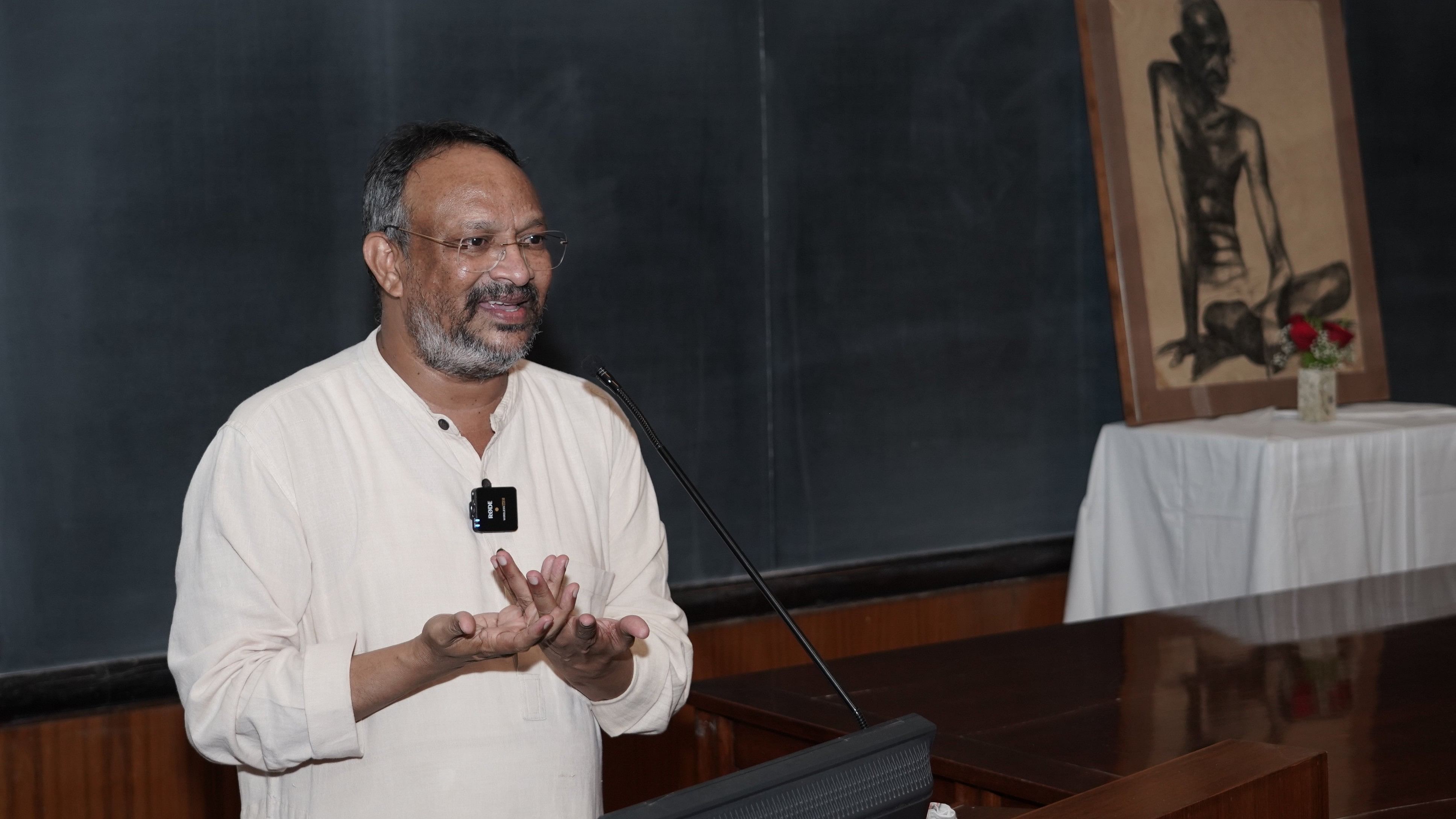
Bezwada Wilson delivering the 50th Gandhi Memorial Lecture at the Raman Research Institute on Wednesday.
Credit: RRI
Bengaluru: Efforts to eradicate manual scavenging in India will require participation of a sensitised society and adoption of technologies that can replace the inhuman practice, Bezwada Wilson, human rights activist and national convenor, Safai Karamchari Andolan, said here on Wednesday.
Wilson was delivering the 50th Gandhi Memorial Lecture (GML) organised by the Raman Research Institute (RRI).
In his talk, titled ‘Manual Scavenging: A Challenge to Democracy’, Wilson urged the society to introspect on the system which forces a community to be engaged in this work in India, even after 75 years of independence.
“Manual scavenging is not merely a scavenger's problem; it is a problem of 140 crore Indians,” he said. Equating manual scavenging to modern-day slavery, the Kolar-born Wilson noted that it continued despite announcements that officially declared the country free of the practice.
Programmes like mass construction of toilets, also conceived originally to eradicate manual scavenging, have since moved away from that objective.
Wilson narrated his experiences, both as a member of a family of manual scavengers and as an activist fighting the discrimination. He underlined systemic flaws that made corrective action increasingly difficult — from lack of official data on the deaths of manual scavengers while at work to lack of political will to inadequate mechanisation.
“We have many research institutes but don’t encourage research in sanitation technology,” he said.
Wilson, winner of the Ramon Magsaysay Award in 2016, said while last year saw 107 deaths of sanitation workers while cleaning sewers and tanks, the deaths were underreported in official records.
He said Japan and Korea have technologies that are cost-efficient but the challenge will be in adapting these technologies to Indian conditions.
The lecture was hosted by RRI in the presence of Prof Tarun Souradeep, Director, RRI, and Prof Jyotsna Dhawan, Chair, RRI Trust. The GML series was instituted in 1959 by the Gandhi Smarak Nidhi.